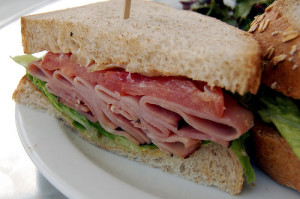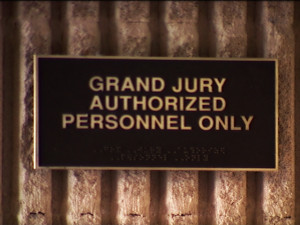Of Grand Juries and Ham Sandwiches
Reading Time: 2 minutes.

It is true: having long ago become unmoored from its origins as a shield between Crown and subject, a grand jury can indict a ham sandwich if the prosecutor desires. The grand jury’s status as a prosecutor’s tool animates this post from our friends at White Collar Crime Prof Blog: Kaley Opinion, Based on Legal Fiction, Is Harmful to Defendants and Lawyers
In particular:
In Kaley v. United States (12-464, decided February 25, 2014), the Supreme Court by a 6-3 vote extended the rulings of United States v. Monsanto, 491 U.S. 600 (1989) and Caplin & Drysdale v. United States, 491 U.S. 617 (1989) by determining that a grand jury finding of probable cause that a federal defendant committed a crime was conclusive in any effort by that defendant to secure funds out of temporarily restrained assets to hire a private attorney of his choice. A defendant seeking release of funds may still be able to challenge the grand jury determination that there was probable cause that the assets seized resulted from or were involved in the purported criminal activity, but not that the activity was criminal.
The opinion, written by Justice Kagan, exalts the inviolability of the grand jury and demonstrates a naive misunderstanding of (or lack of concern about) the reality of its role in the determination of probable cause, ignores the presumption of innocence, and denigrates the importance of independent defense counsel in the criminal justice system. It tilts the playing field of justice in the government’s favor by giving the government, in some cases, the option to deprive the defendant of the counsel he has selected or intends to select.

This subject merits a deeper review in upcoming weeks, but suffice it to note that the combination of (1) the legal fiction of grand jury independence; (2) the grand jury’s power and secrecy; and (3) the fact that businesses and businesspeople often misunderstand or are careless about items (1) and (2) can spell disaster for well-meaning corporate citizens.